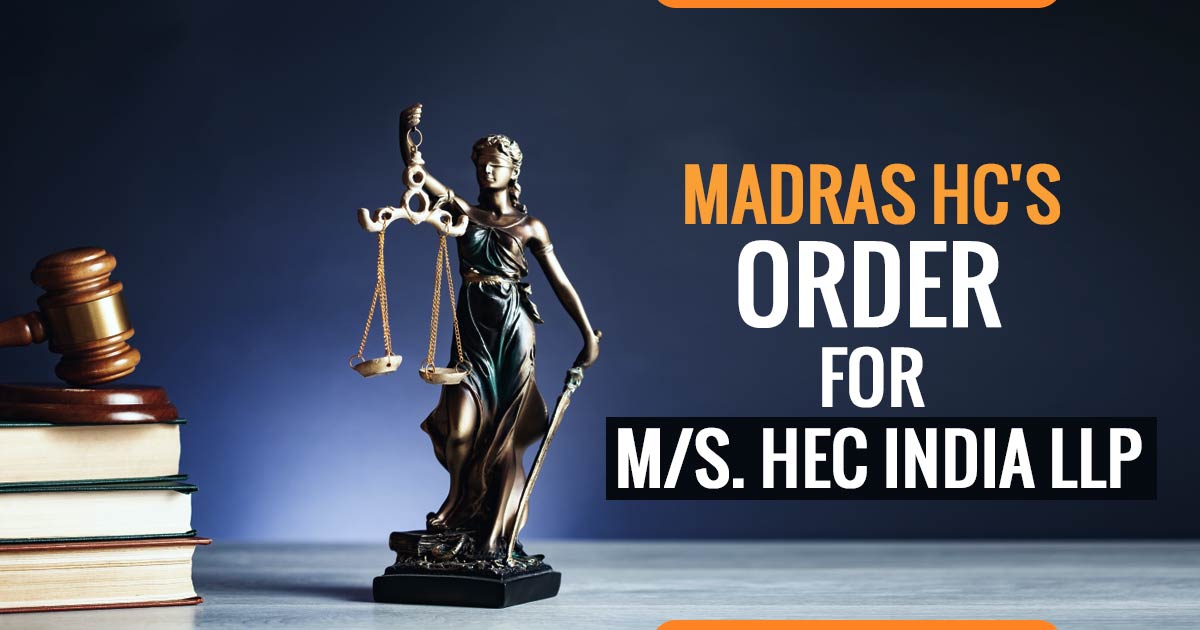
The Madras High Court ruled that the GST council must discuss the causes towards blocking Input Tax Credit (ITC) to the assessee.
The applicant is the owner of HEC India LLP urging the respondents to allow the applicant to debit a sum of Rs 47,30,457 through its electronic credit ledger displayed in the ledger. The Writ court dropped the writ applicant which provides the relief to the applicant to solve the issues in grievances as per the compliance of the authorities as the court shall not provide the direction which was urged.
The two judges T.S.Sivagnanam and Justice Sathi Kumar Sukumara Kurup held that if the council has the reasons to trust that inside the electronic cash ledger the credit of input tax available is been claimed in the wrong way or the taxpayer is not eligible decided in the clauses from (a) to (d) of Rule 86-A(1) then the head post recording the causes might not permit to debit the amount which is equal to the credit in the electronic credit ledger.
But the court added that post to execute that the council is forced to discuss the reasons upon the receipt of these causes, the taxpayers are subjected to bring out his submission/objection asking for raising of the order and building a case that there shall no availment of credit in a bogus way or the taxpayer will not comes beneath any of the contingencies specified in clauses (a) to (d) of Rule 86-A(1) resulting in making them non-eligible towards the credit.
The judges want the GST council to be forced to acknowledge the petitioner’s representation on 22/6/2021. The representation provided through the petitioner specified that they claimed the credit as per the law and they indeed requested the struggles which are caused by the order
Passed beneath Rule 86-A. The petitioner who is the taxpayer does not find out that in what perspective the order under Rule 86-A was passed, the showcasing is normal in nature. Hence for the good representation which is to be executed by the petitioner is subjected to find out the causes on the grounds of which the power beneath rule-86 A was invoked via the 2nd respondent.
“The Writ Appeal is allowed and the order passed in the writ petition is set aside and the writ petition is disposed of by directing the respondents or any other officers, who have been authorized by the first respondent to communicate the reasons recorded in writing before invoking the powers under Rule 86-A to the appellant, within a period of one week from the date of receipt of a copy of this order and on receipt of the same, the appellant is entitled to file his objections within a period of three (3) days, thereafter, and on receipt of the objections, the concerned authorities shall pass an order and if the concerned authority is satisfied with the explanation may revoke the order passed under Rules 86-A or otherwise pass a speaking order as to why the request made by the appellant cannot be complied with and communicate to the appellant within a period of seven (7) days, thereafter. In such an event, it will be open to the appellant to question the said order in the manner known to the law,”